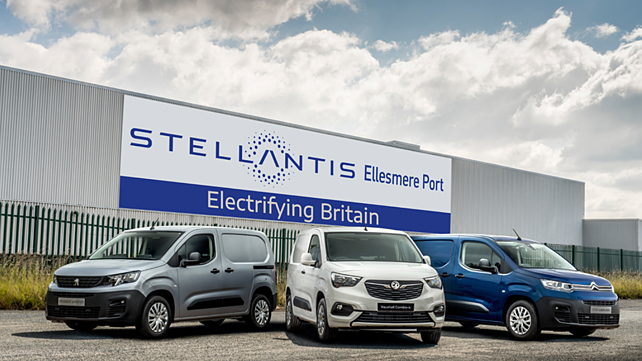
French car manufacturer Stellantis on Tuesday announced a £100 million investment in Vauxhall’s Ellesmere Port manufacturing plant to transform the site for a new era in electric vehicle (EV) manufacturing.
Ellesmere Port will become the first Stellantis plant to produce a solely battery-electric model, in both commercial and passenger versions, by the end of next year, for Vauxhall, Opel, Peugeot and Citroën brands and for both domestic and export markets.
This dedication to battery EVs will go towards achieving the UK Government’s decision to stop sales of pure petrol and diesel-engined vehicles from 2030.
Carlos Tavares, Chief Executive Officer at Stellantis, said, “Performance is always the trigger for sustainability, and this £100 million investment demonstrates our commitment to the UK and to Ellesmere Port. Producing battery EVs here will support clean, safe and affordable mobility for the citizens. Since 1903 Vauxhall has manufactured vehicles in Britain, and we will continue to do so.”
Kwasi Kwarteng, UK Government Secretary of State for Business, Energy and Industrial Strategy, said, “Ellesmere Port’s proud tradition in auto manufacturing will continue for many years to come thanks to today’s investment. Stellantis’ decision to double down on their commitment to this site is a clear vote of confidence in the UK as one of the best locations globally for competitive, high-quality automotive production.”
The plant aims to be 100% self-sufficient for electricity, and work will commence imminently on potential wind and solar farms.
The company has also announced the intention to consult on further investment into the Ellesmere Port site to create a new UK parts distribution centre.
From later next year, Ellesmere Port will build the following all-electric vehicles:
| Electric LCV | Electric Passenger Car |
| Vauxhall Combo-e | Vauxhall Combo-e Life |
| Opel Combo-e | Opel Combo-e Life |
| Peugeot e-Partner | Peugeot e-Rifter |
| Citroën e-Berlingo | Citroën e-Berlingo |
These light commercial vehicles and their passenger car variants are powered by a 100kW (136hp) motor with a 50kWh lithium-ion battery. They can be charged at up to 100kW and take just 30 minutes to charge from 0% to 80%. Under WLTP conditions, they are capable of up to 174 miles of range.
Vauxhall, Opel, Peugeot, and Citroën brands have already committed to offering all-electric versions of their entire respective van model ranges before the end of 2021.